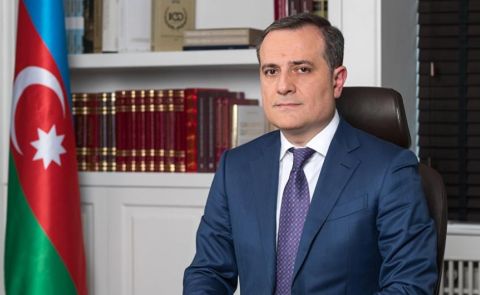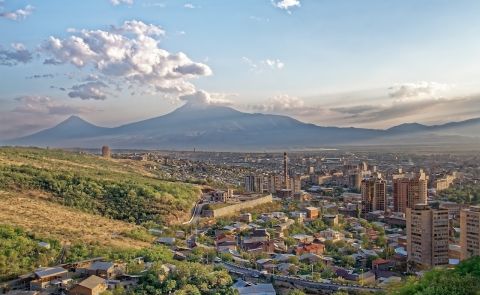
Georgian President Advocates for EU and NATO Membership at Munich Security Conference

During her visit to Munich for the Munich Security Conference, Georgian President Salome Zourabichvili engaged in an interview with Bloomberg on February 17th, discussing matters such as Georgia's aspirations for EU and NATO membership, the conflict in Ukraine, and the demise of Alexei Navalny.
Zourabichvili highlighted the transformative effect of Ukraine on the EU's enlargement strategy, emphasizing that Georgia's progress towards EU integration has been accelerated by its own resilience and determination to align with European values. She underscored the Georgian populace's unwavering commitment to this path and expressed optimism about the upcoming parliamentary elections bolstering Georgia's European direction.
Zourabichvili dismissed any direct linkage between Ukraine's NATO ambitions and Russia's aggressive actions, asserting the importance of NATO membership for Georgia's security. She refuted the notion that potential shifts in U.S. leadership could undermine NATO's strength, maintaining her country's steadfast path towards EU and NATO integration.
The Georgian president voiced concerns over Putin's intensifying military actions in Ukraine, asserting that Putin's strategies are bound to fail. She stressed the importance of international support for Ukraine, framing it as crucial for broader security and democratic values.
In an interview with Euractiv, Zourabichvili touched on Georgia's EU candidacy and its commitment to meeting EU conditions. She was optimistic about overcoming political polarization and advancing towards EU accession, emphasizing the Georgian people's clear preference for European integration over pro-Russian inclinations. Overall, Zourabichvili conveyed a vision of Georgia firmly on the European and Atlantic path, championing democracy, security, and international solidarity in the face of challenges.
During her stay in Munich, the Georgian president participated in the panel titled “A Deeper, Wider and More Capable EU?” where she highlighted the criticality of EU membership for Georgia and underscored the significance of EU expansion in bolstering the Union's security framework.
Zourabichvili articulated that for Georgia, joining the EU is not merely desirable but essential, particularly from a security standpoint. She pointed out that the EU's past expansions have enhanced security for both the new member states and the EU at large. Highlighting the strategic importance of the Black Sea region, she referenced Russia's attempts to dominate this area, underscoring that EU enlargement serves the dual purpose of securing Georgia's future and curtailing Russia's ambition to be the dominant force in the Black Sea.
She firmly stated that EU enlargement holds existential value for Georgia, emphasizing its necessity rather than preference. Zourabichvili also raised concerns about Russia's aggressive tactics beyond conventional warfare, including cyber and hybrid threats and the emerging threat of anti-satellite warfare, underlining the mutual existential stakes of enlargement for both Georgia and the EU.
During the discussion, Polish Foreign Minister Radoslaw Sikorski referred to former Georgian President Mikheil Saakashvili, acknowledging his role in Georgia's modernization and advocating for his fair treatment under the rule of law, suggesting that President Zourabichvili could play a role in facilitating his release.
Additionally, Emmanuel Bonne, the diplomatic adviser to the French President, affirmed the EU's commitment to integrating Ukraine and Georgia, emphasizing the serious intent behind these promises. He highlighted the mutual benefits of such an expansion, signaling the EU's keen interest in welcoming these nations into its fold.
See Also


Nordic-Baltic Delegation Meets Armenian Leaders to Discuss Regional Cooperation and Peace

Azerbaijan Strengthens Energy Partnerships with Multiple Countries

BP Strengthens Presence in Azerbaijan’s Offshore Energy Sector

Netanyahu’s Letter to Aliyev: Mutual Trust, Solidarity Following Hamas Attacks, Facilitating Dialogue Between Israel and Türkiye

